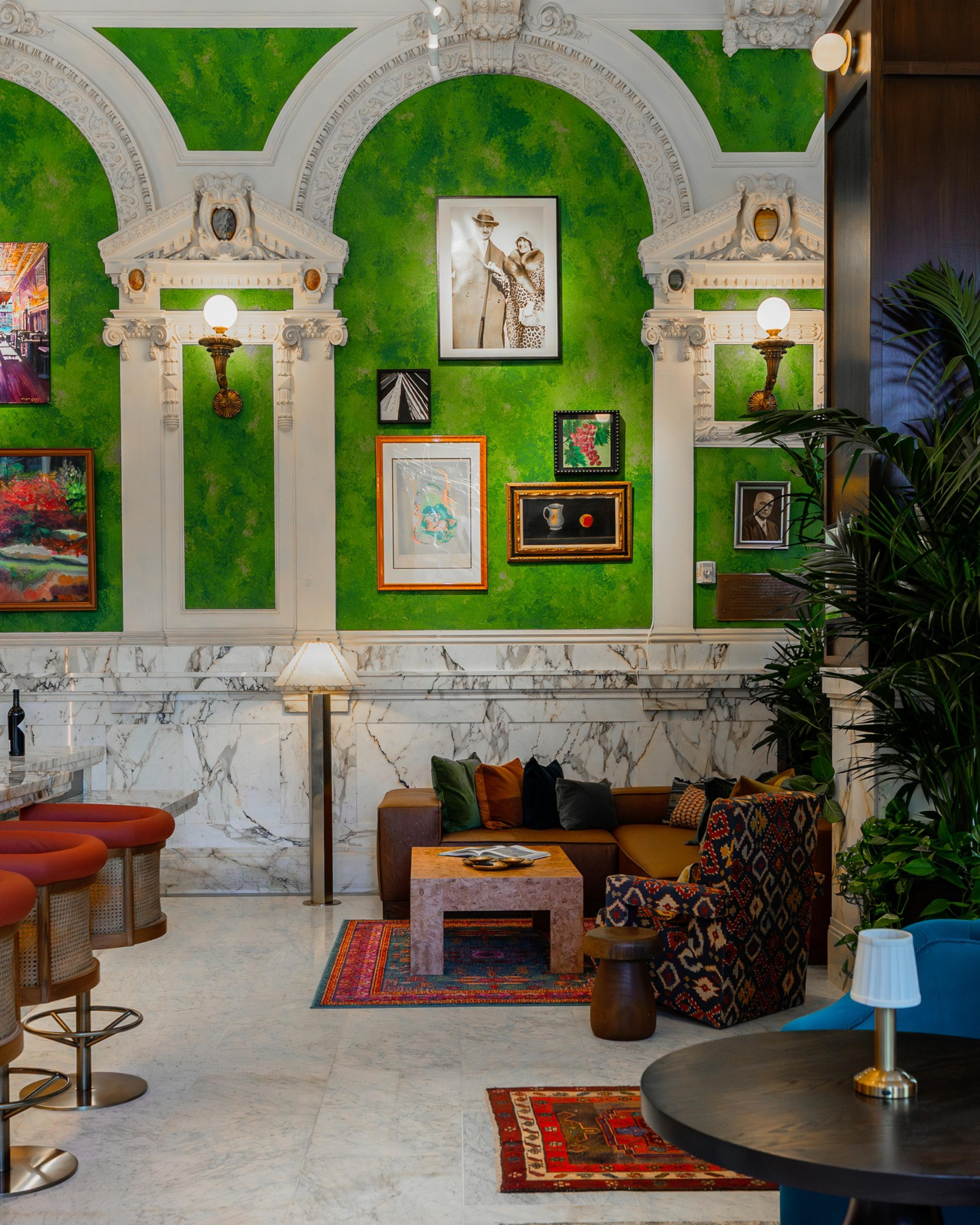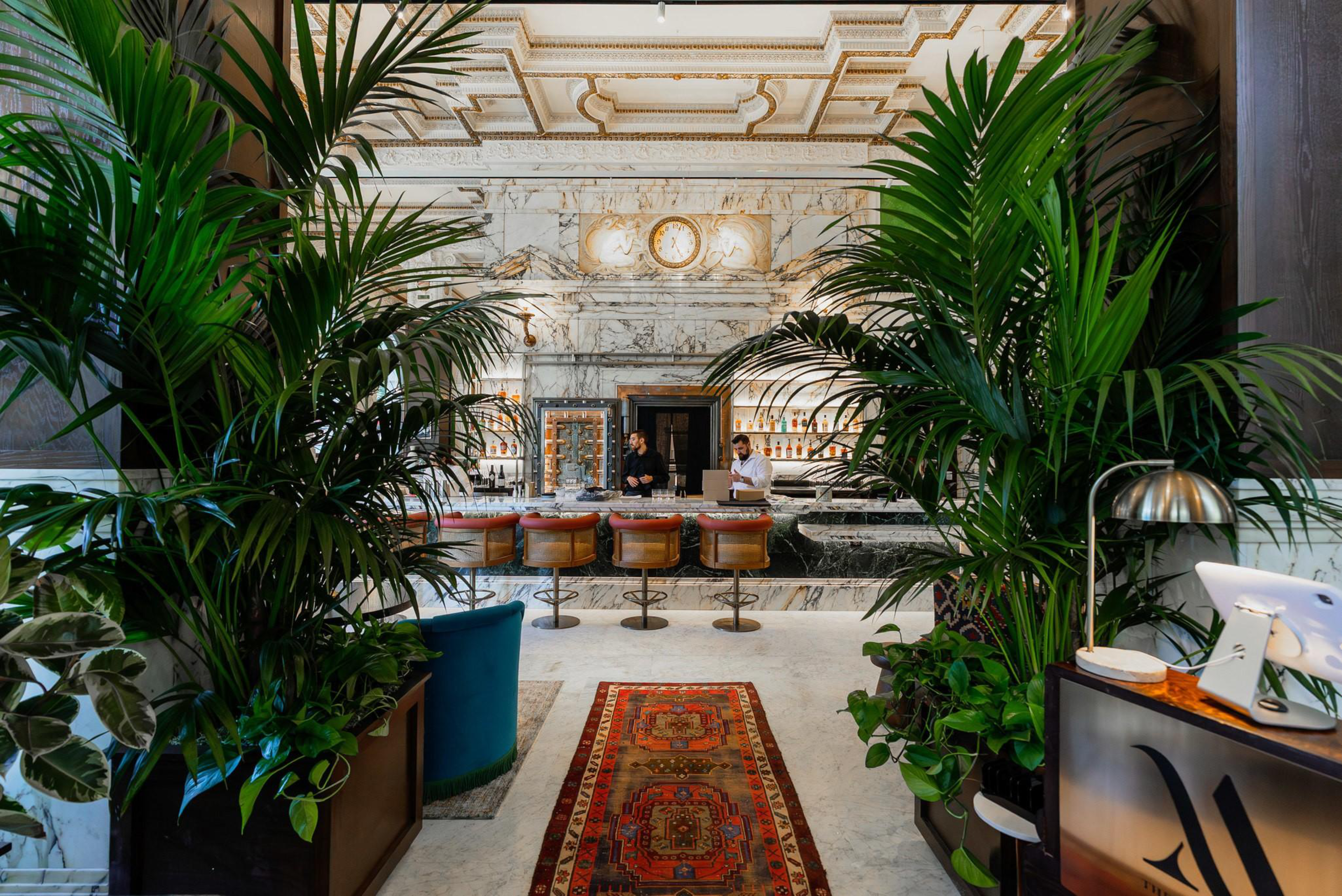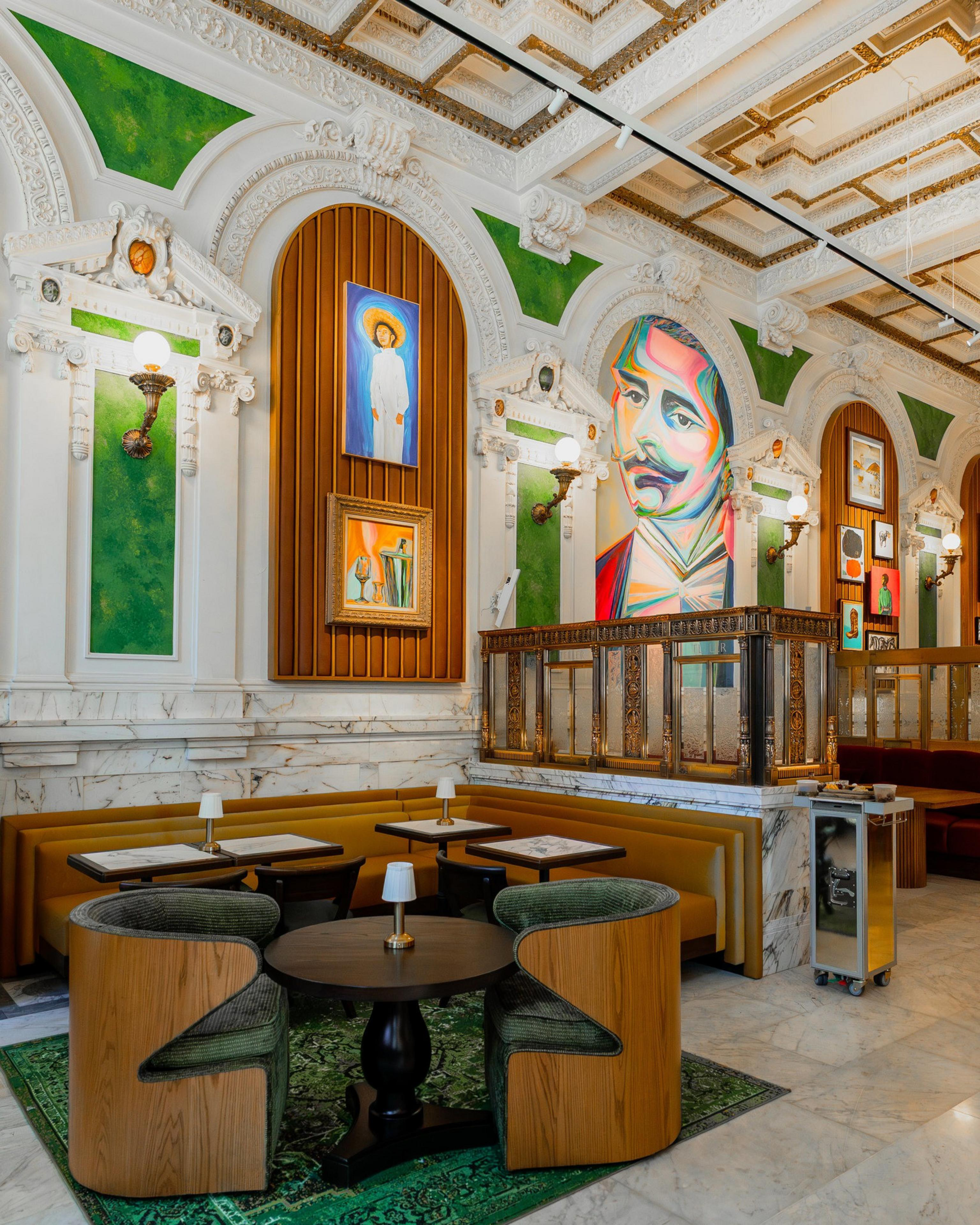Welcome to The Looker, a column about design and style from San Francisco Standard editor-at-large Erin Feher.
Four types of caviar. Five styles of martini. Zero sound baths. The Bank at Amador (opens in new tab) is a semi-private club that opens Monday in the heart of the Financial District, the micro-neighborhood that has emerged as the new hot spot for old-school chic. Its pitch to bankers, real estate professionals, union leaders, and C-suite executives who know their way around a pocket square? Come indulge in unabashedly traditional pleasures: a stiff drink, a tray of ice-cold oysters, and a quick caviar bump.
The club is on the ornate ground level of the Bank of Italy building at 550 Montgomery, where the top two floors have long hosted the private club Wingtip, which later became the Amador Club. This new addition is an evolution of the concept that hopes to capitalize on the resurgence of the Financial District and be more inclusive by offering affordable membership tiers.
At the building’s entrance, carved sandstone nudes over the doorway and gold-leafed coffered ceilings call back to a time when banks telegraphed their trustworthiness through metric tons of marble. The former vault is now lined with back-lit amber whiskey bottles, while the old teller counter features a glass case stocked with Beausoleil oysters, glossy hamachi, and petite pots of Tsar Nicoulai caviar.

The Bank at Amador will be open to the public on weekday mornings from 7 to 10:30, when it will serve coffee and French pastries from neighboring Maison Nico. Otherwise, it’s reserved for members, who pay $50 a month for access, with no upfront fee. The lunch and dinner menus are more expansive (and expensive) and boast the raw bar, as well as dishes such head-on prawns with blistered cherry tomatoes, smoked sturgeon rillet, beef tartar, and “billionaire bacon,” a candied bacon recipe dreamed up by Snoop Dogg.
The 1908 baroque building has been given a modern maximalist makeover by Carlos Anthony Lopez of L.A.’s Winston Studios. The walls, formerly white, have been blasted with color and pattern. Upholstered panels, pops of emerald-green paint, and dozens of works of contemporary art, hung salon style, usher the space into the current moment. Lopez designed and fabricated nearly all of the furnishings, which represent a riot of styles and eras but are all sumptuously upholstered in rich leathers, high-pile corduroys, and silky velvets. The room offers a wealth of options for perching with a long-stemmed up glass filled like a gin infinity pool.
Anyone walking by the corner of Montgomery and Clay can peer through the 8-foot-tall arched windows and take in the walls of amber-veined Calacatta marble and a technicolor mural of Bank of Italy founder A.P. Giannini. And for a few hours each morning, anyone can step inside and sidle up to the former teller counter and order a pour-over coffee and a financier, the butter-heavy mini almond cake popular with 19th century Parisian bankers.

Evan Krow, an early Wingtip investor who owns the Bank at Amador, has led the brand’s continuing evolution since he bought the business in 2018, during a decade when the private social club scene exploded in San Francisco and just before Covid put a hard stop to schmoozing.
In 2024, Krow changed the name of the penthouse club from Wingtip to the Amador Club. He says a redesign of the space is coming soon. Similar to other San Francisco clubs, like The Battery, The Modernist, and Shack15, the Amador Club costs $2,500 to join and $250 a month, invite only.
The Bank at Amador wants to differentiate itself by being more accessible and more gender balanced. While Wingtip was technically open to everyone, the shop stocked only men’s apparel, fly-fishing gear, and high-end watches, so the number of women members was predictably small. Women make up about 25% of the current 500 members.
The ground-floor Bank at Amador is Krow’s attempt to cast a wider net and give the club-curious an accessible taste of private life. It will open with 600 founding members, all of whom were initiated through trustees, ambassadors, and principals — a recruitment system that, when sketched out as a diagram on paper, bears a resemblance to an ancient Egyptian building.

Krow says the method ensured a diversity of members. A slate of 20 trustees — who each invited 10 ambassadors, who then invited four principals — include bankers, investors, real estate professionals, San Francisco fire marshall and deputy chief Chad Law, and chef and restaurateur Brandon Jew. Krow says the membership is 59% women and is especially proud to have members from the local firehouse.
“We also have a data scientist from Uber, so we definitely have tech,” Krow says, somewhat sheepishly. “You can't really get out of the way of that.” When asked what type of people he’s courting, Krow was confident in his updated talking point: When the Bank at Amador was announced last year, the phrase seeking “quality people” struck many the wrong way. “We’re just looking for good people,” says Krow, by way of explanation. When it comes to identifying what that means, he relies entirely on the endorsements of people he knows and trusts. “I don’t care if you’re an artist or a lawyer or a doctor. We have a saying up here, which is ‘No assholes allowed.’”
